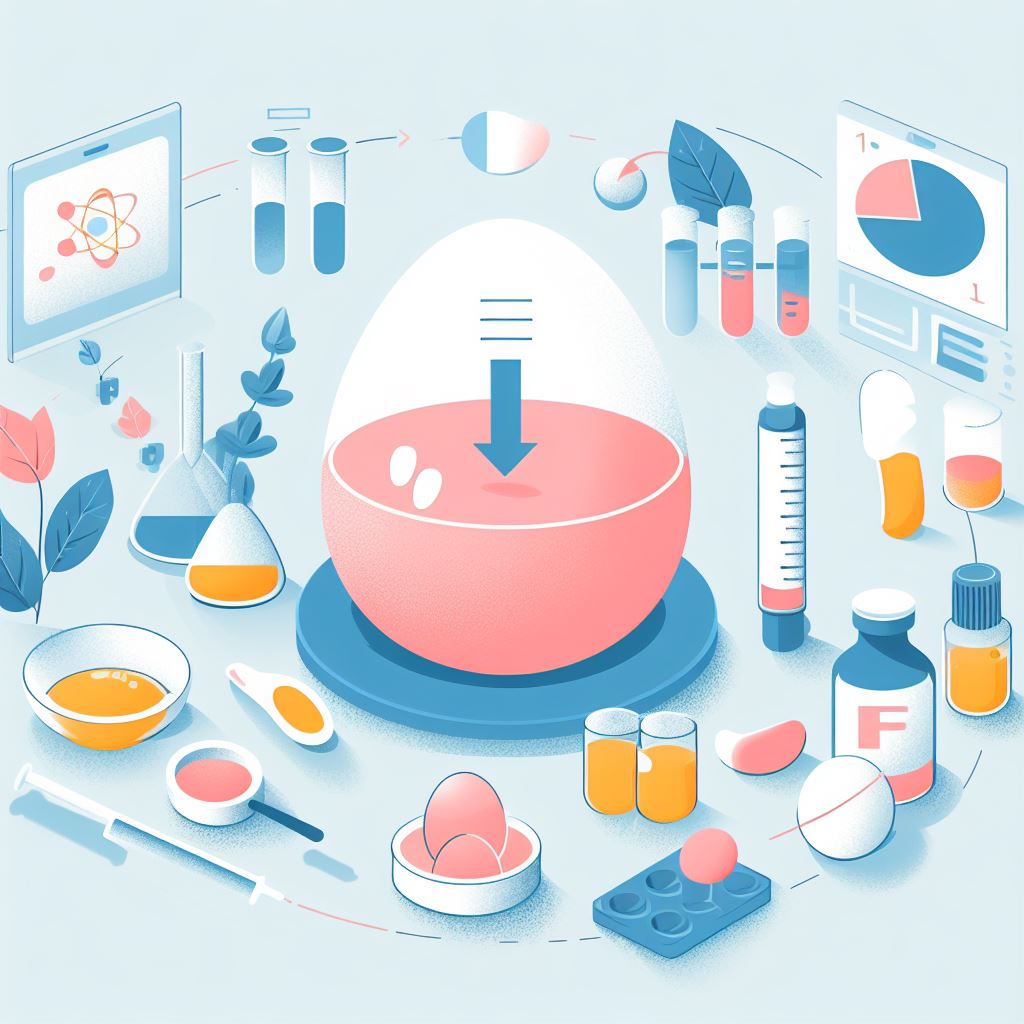Introduction
When it comes to In Vitro Fertilization (IVF), the quality of eggs plays a pivotal role in the success of the treatment. Many factors like age, lifestyle, and health conditions can influence egg quality. Fortunately, there are various ways to improve this critical component of the fertility process. In this article, we will cover a comprehensive range of topics such as the signs of bad egg quality, how to improve egg quality in 30 days, and much more.
Signs of Bad Egg Quality
Bad egg quality is often a silent issue, not showing explicit symptoms. However, some general signs can include:
- Failed IVF cycles: Repeated unsuccessful attempts.
- Low Ovarian Reserve: Less number of eggs in the ovaries.
- Poor Embryo Development: Abnormalities in embryo after fertilization.
- Advanced Maternal Age: Generally, women over 35 experience decline in egg quality.
Relevant Statistics
- Roughly 10% of women aged 1-44 experience infertility.
- A woman’s egg reserve can start depleting as early as her late 20s.
Improve Egg Quality in 30 Days
It might sound ambitious, but certain lifestyle changes can show noticeable improvements within a month. Here’s how:
- Dietary Changes: Incorporate foods rich in antioxidants.
- Exercise: Moderate, but regular exercise can enhance blood flow to the ovaries.
- Stress Management: Practices like yoga and meditation.
- Supplements: CoQ10 and DHEA are known to improve egg quality.
Coenzyme Q10 and DHEA Supplements have shown promise in clinical trials.
Quick Tips for 30-Day Improvement
- Avoid caffeine and alcohol.
- Stick to a balanced diet and add more fruits and vegetables.
- Get sufficient sleep.
Best IVF Protocol for Poor Egg Quality
Choosing the right IVF protocol can make all the difference. Some effective protocols for poor egg quality include:
- Antagonist Protocol: Helpful for older women or those with low ovarian reserve.
- Long Lupron: Suppresses premature ovulation.
- Natural Cycle IVF: Utilizes naturally selected eggs.
| Protocol | Best Suited For | Effectiveness |
|---|---|---|
| Antagonist | Older women | High |
| Long Lupron | Premature Ovulation | Moderate |
| Natural Cycle IVF | Poor Responders to medication | Low |
How to Increase Eggs in Ovary
Increasing the number of eggs in the ovary is a bit more complicated, but not impossible.
- FSH Injections: Increases egg production.
- Ovarian Drilling: A surgical procedure to stimulate the ovaries.
- Acupuncture: Can aid blood flow to the ovaries.
To-Do List to Increase Eggs
- Consult your healthcare provider for tailored treatment.
- Regular monitoring of hormone levels.
- Follow-up ultrasounds to measure progress.
Foods to Improve Female Egg Quality
Diet plays an essential role in improving egg quality. Some of the must-have foods include:
- Omega-3 rich foods: Like salmon and chia seeds.
- Protein: Lean meat, legumes, and eggs.
- Fruits and Veggies: Preferably those high in antioxidants.
Grocery Shopping List
- Salmon
- Chia Seeds
- Chicken Breast
- Lentils
- Berries
Improving Egg Quality After 35
The task becomes more daunting after 35, but it’s far from impossible.
- Regular Medical Check-ups: To monitor hormone levels.
- Aggressive Lifestyle Changes: More focused dietary and lifestyle changes.
- Prenatal Vitamins: Folic acid, in particular, is beneficial.
How Long Does it Take to Improve Egg Quality
Improving egg quality is a gradual process. While a month can show significant improvements, ideally, a 3 to 6-month period is advised for comprehensive changes.
Timeline for Egg Quality Improvement
- First Month: Lifestyle changes.
- Second Month: Monitoring and adjustments.
- Third to Sixth Month: Continued implementation and monitoring.
How to Improve Egg Quality with PCOS


Polycystic Ovary Syndrome (PCOS) can particularly affect egg quality. However, approaches like:
- Insulin-Regulating Medications: Such as Metformin.
- Lifestyle Changes: Weight loss and exercise.
- Specific IVF Protocols: Tailored to treat PCOS conditions.
PCOS-Specific Recommendations
- Low Glycemic Diet
- Regular exercise
- Stress Management
Final Thoughts
Improving egg quality for IVF is a journey that requires patience, informed choices, and dedication. While age and certain health conditions like PCOS can make the process more challenging, targeted treatments and lifestyle changes can help achieve meaningful improvements. Remember, consult your healthcare provider for advice tailored to your individual needs.
